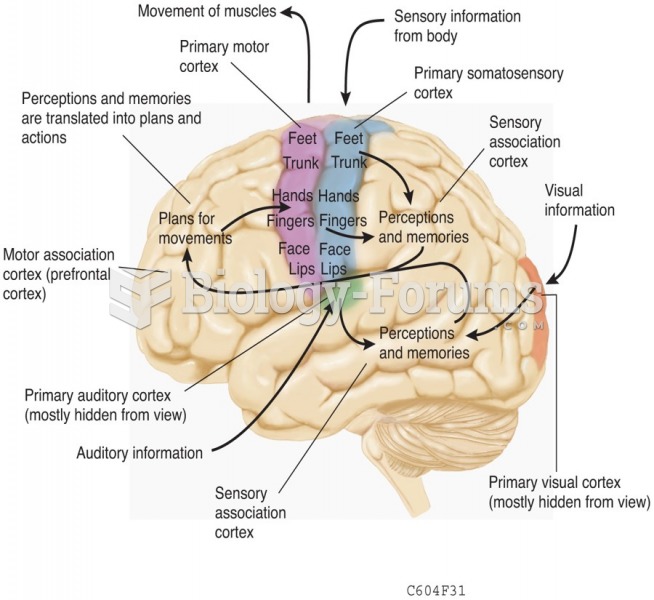|
|
|
The Romans did not use numerals to indicate fractions but instead used words to indicate parts of a whole.
Normal urine is sterile. It contains fluids, salts, and waste products. It is free of bacteria, viruses, and fungi.
Hypertension is a silent killer because it is deadly and has no significant early symptoms. The danger from hypertension is the extra load on the heart, which can lead to hypertensive heart disease and kidney damage. This occurs without any major symptoms until the high blood pressure becomes extreme. Regular blood pressure checks are an important method of catching hypertension before it can kill you.
Bacteria have been found alive in a lake buried one half mile under ice in Antarctica.
More than 2,500 barbiturates have been synthesized. At the height of their popularity, about 50 were marketed for human use.







